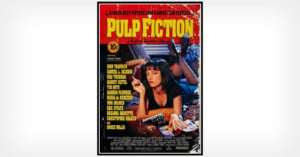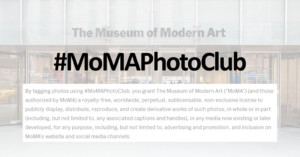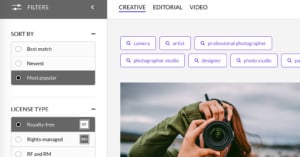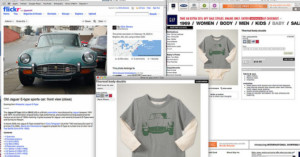
Italian Court Orders Getty Images to Remove Photos of Michelangelo’s David
The Getty Images' Italian website is being forced to remove any content that depicts Michelangelo's David after legal action was brought by the Italian Ministry of Culture.

The Getty Images' Italian website is being forced to remove any content that depicts Michelangelo's David after legal action was brought by the Italian Ministry of Culture.

Chi Modu took some of the most iconic images of legendary rapper Notorious B.I.G standing in front of the World Trade Center in 1996 when Biggie was at the height of his fame.

A judge has dismissed a lawsuit filed by the photographer who shot the iconic photo of Uma Thurman on the poster for Pulp Fiction, saying he waited too long to file for copyright infringement.

On August 3, Ancestry.com -- the largest for-profit genealogy company in the world -- updated its terms and conditions to include new language that gives it the right to use any family photos uploaded to its system for anything it likes, forever and without limits.

Acclaimed rapper Jay-Z has filed a lawsuit against photographer Jonathan Mannion -- who photographed Jay-Z's 1996 debut album "Reasonable Doubt" -- for misusing his likeness, which includes the sale of merchandise such as photo prints and shirts, and licensing his image without the rapper's permission.

Although professional photographers may deal with copyright and licensing regularly, it is not right to assume that clients are just as versed. For that reason, an architecture photographer has put together a simplified explanation to help business owners better educate their clients on who owns the produced photos and how they can be used.

The Museum of Modern Art (MoMA) is soliciting photographers to share photos on Instagram based on monthly themes. Those who participate will be featured on the MoMA's social channels, but also give the museum significant rights to use the photos "for any purpose."

Getty Images has announced that it will be transitioning all of its creative stock photography offerings to a Royalty Free licensing model and ditching Rights Managed licensing entirely—a move that will be more convenient for customers, but worse for photographers.

Google is taking another big step in protecting photographers' copyright through the Google Images image search engine: it just added image rights metadata to the photo search results on Google Images.

Notable American photographer Kalliope Amorphous has published a warning to other photographers who are considering protecting their copyright using ImageRights International. She accuses the company of an "egregious grab" that forces photographers to use the company's legal services.

In August I hired ImageRights International, a reputable copyright enforcement agency, to assume the routine handling of commercial infringements of my professional work. There are a lot. Starting in September 2014, companies began receiving letters from ImageRights’ partner law firms seeking to resolve these infringements on my behalf.

Flickr user Chris Devers recently found that one of his photographs had been used by The Gap as a design for children's clothes (here and here). The photo itself was published under a Creative Commons license requiring attribution, non-commercial use, and no derivative works -- usage conditions that were completely ignored.